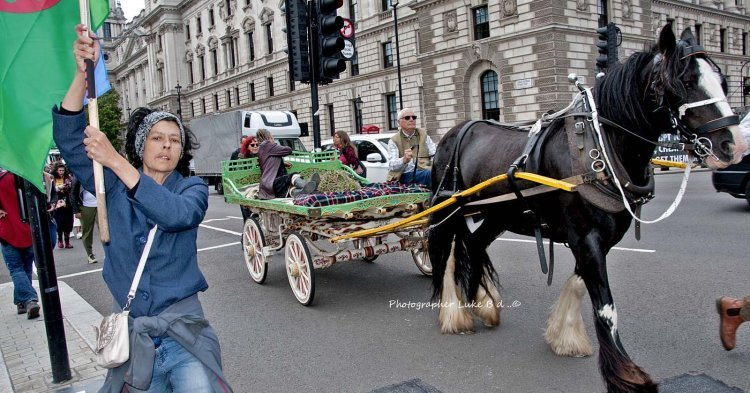In many ways, the lives of the Roma community in the UK (sometimes known as a sub-group called Romanichal Travellers) have become more difficult in recent years. They face relentless discrimination, with the most recent example showing itself in the government’s newly-passed law that even further encroaches on the Roma community’s way of life: the controversial Police, Crime, Sentencing and Courts Act. This newly passed law aligns with levels of anti-Roma discrimination that remain rife in the UK, a phenomenon so common that it has been described by the Traveller Movement as the ‘last acceptable form of racism’.
Interwoven into the fabric of British life
The Roma have formed part of British society for centuries, as early as at least the 16th Century: yet, they have faced persistent discrimination, with deportation or execution a common British punishment for the crime of simply being a member of the Roma. Despite their significant presence in British history [1], 2021 was the first year that the term ‘Roma’ appeared on the census as a distinct category, and the Roma community in the UK is classified under the ‘Gypsy, Roma and Traveller’ (GRT) community in terms of legal recognition. Today, official figures show that the Roma community make up between 150,000-300,000 of the country’s population, although estimates are believed to be far higher, due to factors such as a reluctance to record one’s ethnic background due to the risk of discrimination.
This presence can be felt, despite attempts to invisibilise and ‘other’ the community. Some members of the UK Roma community also speak their own dialect in the country, known by scholars as ‘Angloromani’. It was once spoken by most British-Romani, and many English words are said to have derived from it - like ‘kushti’, and ‘gibberish’. Despite the fact it is an indigenous language of the UK, it has not received official recognition like Welsh, Scots, Gaelic, Cornish, Irish, and Ulster Scots have done.
The latest restrictions
In 2022, the Police, Crime, Sentencing and Courts Act was passed in April. Throughout its passage, this bill grabbed headlines and was contested due to its restrictions on protest rights and harsher punishments for vandalism. The House of Lords has since made amendments to these parts of the bill, but the restrictions on Roma people have been allowed. Among other new restrictions on civil life, the bill has made trespassing a criminal offence, targeting nomadic communities as it specifies ‘unauthorised encampments’ in its wording, and suggests that camps cause ‘distress and misery’ to those who live near them. Despite the scarcity of safe places for nomadic people to legally stop, they now face the prospect of prison time, huge fines, or confiscation of their homes if found to be ‘trespassing’. Without no alternative, this means that travelling communities will be forced to either give up their centuries-old nomadic custom for good, or be severely punished for continuing to practice it.
The Act has been widely condemned by Roma advocacy groups, such as the charity Friends, Families and Travellers, as well as many other human rights groups. It is clear that this violates several rights that the Roma community hold, for example, the right for people of ethnic minorities to enjoy their own culture, enshrined in the United Nations Declaration on the Rights of Persons Belonging to National or Ethnic, Religious and Linguistic Minorities. It arguably also infringes on article 12 of the UN Declaration of Human Rights: ‘No one shall be subjected to arbitrary interference with his privacy, family, home or correspondence’. In a post-Brexit society, Roma people in the UK no longer have the support of documents such as the EU Roma Strategic Framework or the EU Council Recommendation on Roma equality, inclusion and participation.
Since public consultations first began for the bill in 2019, discrimination and general anti-Traveller discourse has continued. According to a survey conducted by the University of Birmingham, ‘Gypsy and Traveller communities’ are the ‘least liked’ in the UK, and the Traveller Movement found that in 2017, 91% of GRT members had experienced discrimination due to their ethnicity. Now, they face the additional barrier of having their ability to practise their own culture restricted.
A bleak future
Having left the EU, the UK now faces less accountability in tackling Roma discrimination from its continental neighbours. In a society that is quickly changing, Roma people will find it even more difficult to practise their way of life without legal support. Without change, the customs that have been passed down through generations of Roma people will not be able to survive, and soon they will have been eroded by the force of discrimination, predujice, and intolerance.


Follow the comments: |
|
